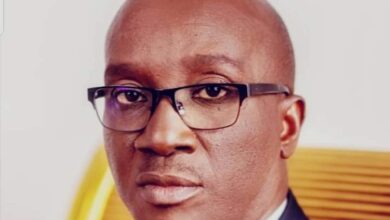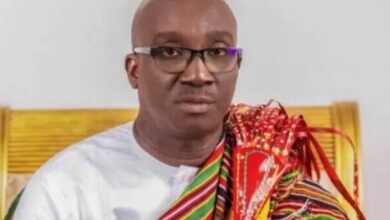Itsekiri group demands emergency rule in Delta over worsening crisis

History is often said to be written by the victors. But in Nigeria’s case, there were no victors—only victims. The so-called “federal victory” of January 1970 was Britain’s victory, not Nigeria’s.
Britain stayed the war from start to finish, orchestrating the blockade, supporting Gowon, and ensuring that the endgame preserved its control over Nigerian oil.
Gowon and Ojukwu, the two figures cast as titans clashing in an existential duel, were in truth pawns. France backed Biafra to secure Elf concessions. America, already entrenched in Saudi oil, remained a spectator. And Nigeria—the grass—suffered.
Gowon has often been praised as the man who “kept Nigeria one.” But he was young, inexperienced, and manipulated. He did what he was asked to do, following the script Britain provided.
Just as children can be used to traffic drugs without understanding the consequences, Gowon was used in a war whose design he neither authored nor controlled.
Ojukwu, Oxford-educated and fiercely ambitious, faced a similar reality: France armed and funded him not out of principle, but in pursuit of oil. Both men were caught in a trap far larger than their ambitions, a war that was never fully theirs.
To over-blame Gowon alone would miss the point. Britain stayed the war, prolonging it when necessary, tolerating famine and suffering as strategic tools. Cabinet papers from Whitehall at the time made it clear: “The blockade will weaken Biafra but must not dislodge Shell-BP’s concessions.”
Shell-BP correspondence confirms the calculus: “Infrastructure may suffer, civilians may starve, but the concessions must remain secure.”
France, on the other hand, wrote in private telegrams that supporting Biafra was less about humanitarian concerns than “Elf’s strategic opportunity in Eastern Nigeria.”
Meanwhile, Washington observed quietly, aware of humanitarian consequences but unwilling to challenge Britain’s sphere of influence.
When Gowon finally announced that the war had ended with “no victor, no vanquished,” he spoke only half the truth. There was no victor in Nigeria. The vanquished were clear: the starving children of Biafra, the destroyed villages, the entire Eastern Region shattered.
But there was indeed a victor: Britain. Its oil contracts remained intact. Its company, Shell-BP, emerged stronger. Nigeria’s postwar trajectory was locked into dependence on oil, corruption, and centralised military power—all conditions Britain had ensured.
Britain stayed the war for its own purposes. It armed Gowon, supplied intelligence, and calculated each phase of the blockade to weaken Ojukwu without permanently destabilizing the federal side.
The famine that killed over three million people—most of them children—was not an unfortunate consequence; it was a tolerated, even strategic, element. Every bomb, every market destroyed, every village razed, was weighed against the ultimate goal: securing oil. And it worked.
By war’s end, Shell-BP’s grip on Eastern Nigeria was unchallenged, Elf’s incursion limited, and America’s interests unaffected.
The tragedy is compounded by silence. Gowon could have written the definitive account—a book titled “The Civil War Truth”—explaining how Britain stayed the war, how both sides were manipulated, and how the Nigerian people suffered as pawns. He did not.
Ojukwu, in exile, spoke selectively, but never fully unburdened the truth. As a result, the historical narrative has been sanitized, leaving Britain’s central role obscured and Nigeria’s victimhood underplayed.
The war’s long shadow endures. Nigeria did not “win” anything. Its infrastructure was devastated, its Eastern economy obliterated, its social cohesion fractured.
Oil became the nation’s lifeblood and its curse, funding patronage and corruption, entrenching military power, and leaving civilians impoverished.
The consequences of Britain staying the war echo through every coup, every oil scandal, and every crisis that followed.
When two elephants fight—the old imperial powers of Britain and France—the grass suffers. And Nigeria, in that terrible calculus, suffered most. It suffered famine, death, displacement, and political trauma.
It suffered because its leaders were pawns. It suffered because Britain stayed the war to secure oil. And it continues to suffer because the truth remains unspoken, buried under decades of silence and selective history.
Yet even in the archives, the record is clear. Whitehall memoranda, Shell-BP letters, and Quai d’Orsay telegrams confirm the strategy: prolong the war, manipulate leaders, tolerate civilian suffering, and secure oil. Nigeria’s civilians were never part of the equation. Their survival was secondary, irrelevant to the real victor.
History demands truth-telling. Gowon had the chance to illuminate it, to explain how Nigeria was caught in a European oil struggle and used as a pawn.
Ojukwu could have done the same. But silence prevailed. It is left to us, decades later, to recount what Britain did, how it stayed the war, and how Nigeria paid the ultimate price.
Britain may have walked away with oil contracts intact, its empire’s revenues preserved. But the war left Nigeria fractured, impoverished, and morally scarred.
The true cost of “victory” is measured not in borders retained but in millions of lives lost and a nation left to piece itself together amid betrayal.
Nigeria was never the victor. The only victor was Britain, and the grass—Nigeria—paid with everything.
Saro-Wiwa: History’s King Jaja of Opobo
My pursuit of justice for Ken Saro-Wiwa was so consuming that, at MIT, I stunned my advisors by abandoning the thesis they had eagerly awaited—“Economic Globalization and the Growth of Poverty and Inequality in the South.”
Instead, I submitted a strange, unsettling title: “The Niger Delta and the Irony of Invisible Empire.”
Nigeria has fought three oil wars:
- The first was over palm oil—King Jaja of Opobo stood tall and was exiled by the British.
- The second, crude oil—Ken Saro-Wiwa rose and was hanged by Nigeria’s military.
- The third is unfolding now in the Niger Delta: resources flowing out, poverty flowing in, a people still unfree.
Different centuries, same script: whenever a Nigerian dares to stand between his people and empire, the system closes in to crush him.
Today’s locally co-opted oil block owners are no different from the co-opted slave raiders of the 19th century. Then, raiders sold their brothers and sisters to European buyers. Now, oil barons sell their nation’s future to Western majors.
In this ongoing Oil Cold War, propped-up “friends of the West” rule as oil ministers—installed through rigged elections.
With one exception: Goodluck Jonathan, the only president not forged in the oil ministry. Little wonder the system worked by all means to replace him with Buhari—another oil minister.
Show me any extremely wealthy Nigerian today, and I will show you a lucrative oil block owner—a modern version of the slave trader enriched by selling his own people.
But history has never been kind to those ancestors who sold their kin for profit. It will not be kind to today’s elite, who conspire in the illegitimate flow of oil from the creeks of the Niger Delta.
History is never kind to empire. The British crown that silenced Jaja is gone. The junta that killed Saro-Wiwa has vanished. Yet their names endure—etched in memory as symbols of resistance, dignity, and the courage to say no.
And still, Saro-Wiwa’s voice echoes: will we remain bowed, or finally rise to claim what is ours?
Basil Odilim Enwegbara is a public affairs analyst.
Post Views: 84





